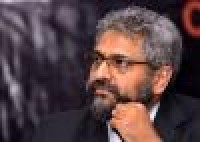The Hindu returns to the family fold

A six-hour board meeting of Kasturi and Sons Ltd which culminated in a tied vote, brought an abrupt end to this family-owned and edited newspaper’s two-year-old experiment with non family professionalization. Siddharth Varadarajan, the non family editor appointed in May 2011 was redesignated contributing editor and senior columnist, and chose to quit. And Arun Anant the non family CEO on the management side who was brought in the same year was notified as no longer being CEO, with his position in the company to be determined by the Board. Though the vote on the resolution tied six-six, it was passed thanks to a casting vote by N Ram, Chairman of the Board.
The paper will now have Malini Parthasarathy as editor, N Ravi as editor in chief, N Ram as Chairman, N Murali as Co Chairman. The latter two will handle industrial relations and “matters touching on the company’s image and reputation internally and externally.”
Varadarajan who became the Hindu’s first non-family editor in many years with strong backing from N Ram the then editor in chief, against strong protests by other members of the family holding editorial positions, was in a sense today seen out of the job by the same Ram, who effectively voted twice. After the six-hour board meeting Ram held a meeting of editorial staff in the newsroom where he spelt out the concerns the family had with the way the paper was being run under a non-family professional editor. Two of the concerns mentioned were the underplaying of Narendra Modi and the creeping in of editorialisation in the news. Other family members said separately that the feeling was that Varadarjan was travelling too much and not spending enough time at the paper’s Chennai headquarters.
Siddharth Varadarajan said it now seems with the benefit of hindsight that the flirtation with professionalization was the product of dysfunctional equations within the family, and with these being resolved was no longer needed. He felt if the Board had complaints about him the solution would have been to get another professional editor.
The vote at the board meeting today underscores the split in the four branches of the family who make up the Hindu ownership. The Narasimhans consisting of the three brothers N Ram, N Ravi and N Murali now will be back at the helm. The three members of the Parthasarathy branch consisting of sisters Nirmala Lakshman, Nalini Krishnan and Malini Parathasarthy joined the first three in voting for changes which took place today. Directors from the Kasturi branch of the family have no designated role in the latest arrangement.
After the meeting the six board members who opposed the decision to remove the professional manager and editor issued a notice to the staff saying they considered N Ram’s casting vote invalid and would “contest the decision through an appropriate mechanism.”
The Hindu family has always had some of its members enter the profession and work on the news floor. Different members of the family held editorial ledership positions at various times. Through the decade of the 1990s N Ravi, Malini Parthsarathy and Nirmala Lakshman held editorial positions in the main paper while N Ram edited Frontline magazine. In 2003 and in 2011 there were internal coups which saw the same members lose their editorial positions. N Ram and Malini Parthasarathy have not seen eye to eye for long periods, but are reported to be amicable now. In a comeback, N Ravi and Malini Parthasarathy return at the editorial helm of the newspaper. Nirmala Lakshman will be a director, with oversight of the literature arts and culture sections of the Hindu.
The Board decision was that other directors K Balaji, K Venugopal and R Ramesh would be in charge of production and business strategy, advertising and technological development, and circulation, respectively, but without formal roles. They declined the roles. The irony is that rather than editorial, the business side of the Hindu is considered in desperate need of overhaul, and the CEO who was brought in was engaged in doing just that.
Much was made at the meeting about the family’s concern at the erosion of values, particularly secular values. One section of the family professed the need to resist communalisation, with N Ram reading out from a 1878 editorial of the Hindu which expressed this concern. Some of the board members and professional heads were thought to be insufficiently concerned about secular values. Varadarajan said dryly that while it was being asserted that he was under-playing Narendra Modi and bringing his editorial judgment into news, those members of the board backing him were being painted as insufficiently secular. It did not add up, he said.